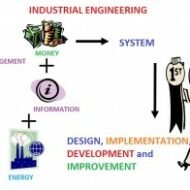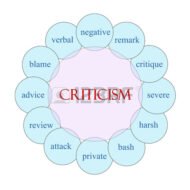Posted by Managementguru in Business Management, Entrepreneurship, Labor Management, Operations Management, Principles of Management
on Mar 31st, 2014 | 0 comments

Operations Research-Emphasizing the need of Math in Management Business is all about “demand versus supply”. And as is always the case, industries operate in a tight situation, with limited resources and heavy demand, trying to make the ends meet. The production of required quantity with the available resources needs an approach that is quantitative and logical as well. This can be obtained by weighing the odds and choosing the right kind of decision that suits your business plan, be it production, distribution, marketing, selling or any business situation, where there is a need to compare and contrast between alternating decisions, to arrive at an optimal solution. High end mathematical concepts in Operations: Operations research comes into the picture in such situations, wherein, high end mathematical concepts and models are applied to problem situations, to first define the problem and then extract the best possible solution by quantifying the resources available. Quantitative data is then converted into linear equations to maximize the productivity and profit. Profit maximization is generally aimed by most of the firms that operate with limited potential and operations research helps to achieve this through optimal use of the available resources. Application of Scientific Methods: The emphasis is on application of scientific methods, use of quantitative data, goals and objectives and determination of the best means to reach them. Once the data is collected, it is carefully evaluated and the relationship among data is established, which helps in defining the problems and goals. The problem is represented logically to decide the course of action. Say, for example, Linear Programming represents each and every problem situation in the form of a linear equation and tries to allocate resources in an optimal fashion. Alternate decisions are evaluated and the decision that yields the best result in terms of productivity and profit is considered. Measure of Effectiveness: How do you measure profit? The measure of effectiveness will be determining the rate of return on investment, and every possible solution can be weighed against this measure. Theories of probability are also used to predict the success rate of the combinations of variables executed in different ways. But one has to understand that only some variables are controllable and others are not. Say, if the economy experiences inflation or recession, your predictions will undergo a drastic review in purview of the fluctuations in the economy. Similarly availability of labor is always a constraint, either labor is not available or they demand more pay. Simplex Methods: Since voluminous data is involved, computers with multi processors are used to manipulate the data. Mathematical tools like simplex methods, integer programming, graphical methods, transportation and assignment techniques, simulations, game theory and queuing theory can be very well applied to solve complex problem situations with ease. Today’s business world demands more sophistication in terms of technical updations. Evolution of Opeartions Research Techniques: Operations Research dates back to the Second World War period, and the accelerated growth of this discipline in recent years can be attributed to the fact that, researchers have found this useful in solving economic and political problems too. At the same time, critics point out that, application of operations research proves advantageous only to those people who are accustomed to the usage of rapid computing machines and understand the complex mathematical formulae and relationships. Note: Energy: The oil industry was one of the earlier users of operations research techniques to help manage their refinery processes, and operations research technologies are heavily used by all the major oil companies. Manufacturing: Manufacturing organizations continue to use operations research to optimize factory operations. Transportation: Operations researchers execute logistics for air traffic control, trucking, and railroads. Real-time dispatching and delivery truck...

Posted by Managementguru in Human Resource, Organisational behaviour, Principles of Management
on Mar 17th, 2014 | 0 comments

Criticism Makes You Stronger and Sharper “Flattery is telling the other person precisely what he thinks about himself.” –Dale Carnegie “Criticism may not be agreeable, but it is necessary.”-Winston Churchill Critics are always feared for their barbed tongue and piercing comments. If you look at popular figures and celebrities, they tend to give much importance to these comments as they are real tools for self improvement and personal enhancement. Criticism helps improve knowledge, helps all the parties involved and helps one to learn and react to the actions of others. It is also a no-cost source of research that promotes a team spirit as well as a certain broad-mindedness / open mindedness of the human resources of an organization. It is a non-monetary tool of motivation. It helps in achieving organizational goals and objectives, also helps in realizing hidden mistakes, and tackles various bottlenecks. No doubt, it is a mixed blessing! Despite its benefits, it renders the following costs, which are the dark side of the coin: 1. It paves the way to enmity and hostility amongst those who frame policies and those who implement them. 2. It may lead to industrial dispute. It creates an unpleasant, undisciplined atmosphere in an organization. 3. It may result in unhealthy conflicts in an organization, undermining its human resources base. 4. It could also kill the spirit of initiative. 5. A superior may feel hurt or insulted when his subordinates / peers pinpoint his short-comings. Criticism can be made more positive on the following premises: 1. Do not perceive it as something bad or a shortcoming. If you feel it is unworthy of you, turn a deaf ear to it. 2. Give some time for the dust to settle down when someone is rude in his criticism as, with time, its impact will be diluted. 3. If you are criticized unfairly defend yourself and stand by your conviction. 4. Perceive it as a source of potential help in making wise decisions. 5. Do not arm the critic by counter attacking. That blows into a vendetta at times. 6. Do not raise your voice above the voice of critic – let him go ahead and be mild and amicable with him. Criticism is like the proverbial double-edged sword, and so can easily be made more effective as a potential business management tool by selecting leading and conductive spots where critics can come together and draw their views verbally / non-verbally, publicly or anonymously. Perceive critics as a vital source to help solve and implement solutions for the problems raised. Explore the critic’s view fully and freely, providing all sorts of ways in which critics can express their deliberations without...




